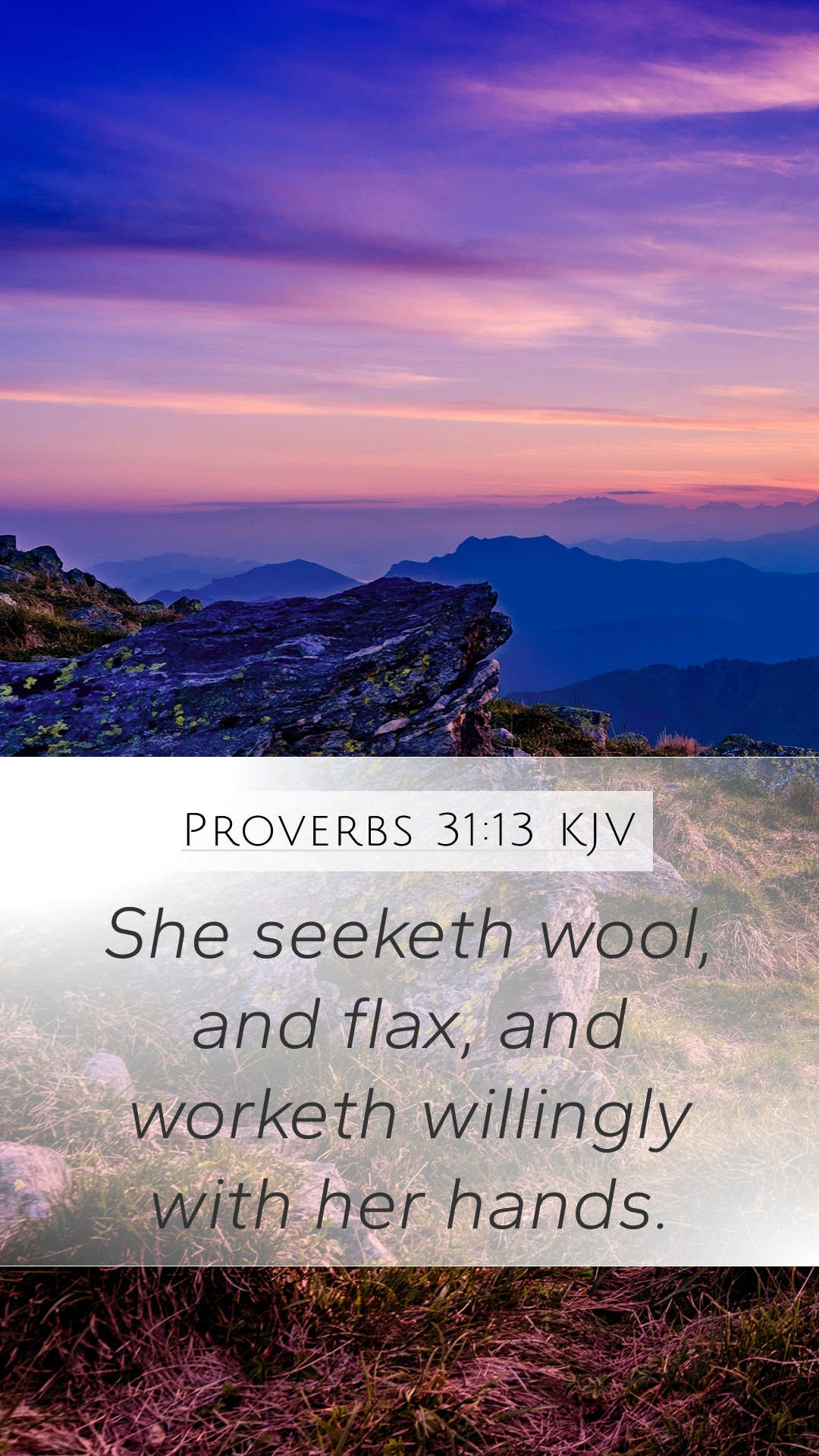Understanding Proverbs 31:13
Proverbs 31:13 states, "She seeks wool and flax, and works with willing hands."
Bible Verse Meanings
This verse is a part of an acrostic poem in Proverbs 31, which describes the qualities of a virtuous woman. It highlights her industriousness and skill in managing her household. The mention of wool and flax symbolizes her resourcefulness and ability to provide for her family through hard work.
Bible Verse Interpretations
According to Matthew Henry's Commentary, this verse emphasizes the diligence and creativity of the virtuous woman. She is portrayed as someone who does not shy away from labor, recognizing the importance of her contributions to her family and household. Albert Barnes adds that her search for wool and flax implies a proactive nature, providing a foundation for both physical and spiritual well-being.
Bible Verse Explanations
-
Work Ethic: The verse signifies the value of hard work. The virtuous woman is not idly waiting but actively seeking resources to use for her family.
-
Resourcefulness: The materials mentioned, wool and flax, indicate her capability in textile production, representing her skillfulness and craftsmanship.
-
Willingness: The phrase "works with willing hands" suggests that her labor is not done grudgingly; she takes joy and pride in her work.
Scripture Analysis
This verse invites reflection on the roles of women in the Scriptures and their spiritual significance. Adam Clarke points out that the emphasis on 'work' is a reminder that spirituality is demonstrated through practical actions. Such a portrayal serves to affirm the importance of women in biblical texts.
Application of Insights
Understanding this verse encourages readers to explore the virtues of diligence and responsibility in their own lives. It is also an invitation to see how Biblical teachings relate to modern challenges in balancing work and family.
In-Depth Bible Verse Analysis
To better grasp the context of Proverbs 31:13, it’s beneficial to consider its placement within the chapter. The preceding verses outline various characteristics of a virtuous woman, culminating in her multifaceted nature—spiritual, physical, and emotional capacities.
Historical Context
Understanding the roles of women in ancient Israel reveals that their contributions were essential to family and community life. This verse encapsulates the qualities respected in a woman within that historical setting—strength, wisdom, and industriousness.
Related Bible Cross References
- Proverbs 31:10: "An excellent wife who can find? She is far more precious than jewels."
- 1 Timothy 5:10: "And and if she has brought up children, shown hospitality, washed the feet of the saints, helped those in trouble, and devoted herself to all kinds of good deeds."
- Titus 2:5: "Then they can urge the younger women to love their husbands and children."
Bible Study Insights
This verse serves as a cornerstone in studies focusing on the roles of women in the Bible, prompting discussions in bible study groups regarding the implications of work and virtue. The text offers bible study resources that can be explored in detail through various bible study guides and lesson plans.
Conclusion
Ultimately, Proverbs 31:13 is profound in its simplicity, communicating that the diligence of the virtuous woman extends beyond mere physical labor—it encompasses her entire being as a provider, nurturer, and contributor to the fabric of family life.


